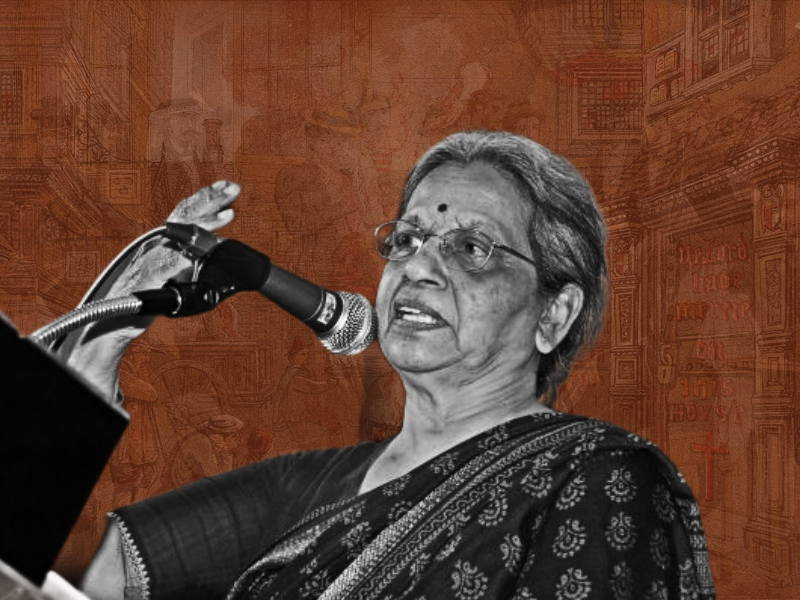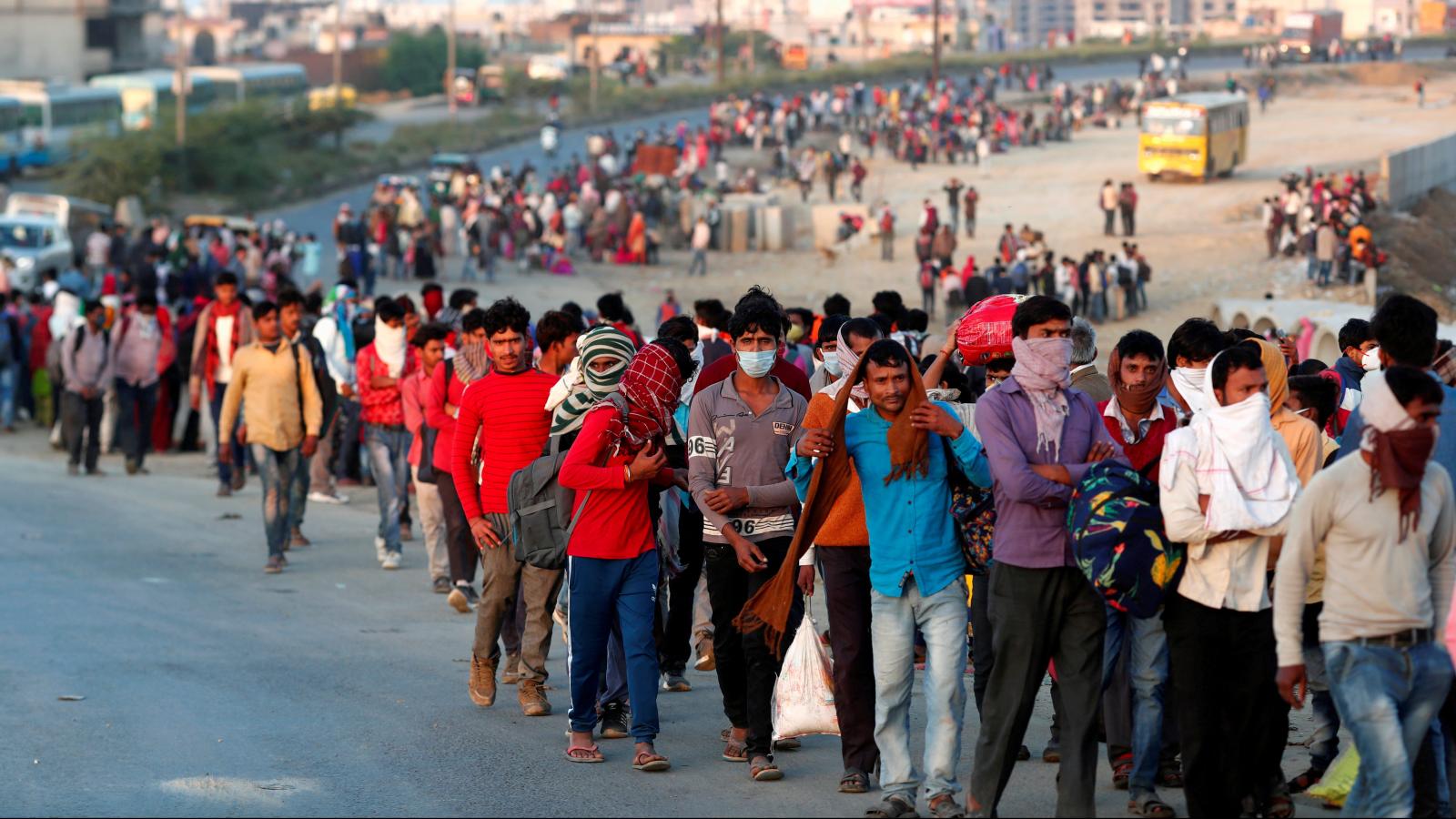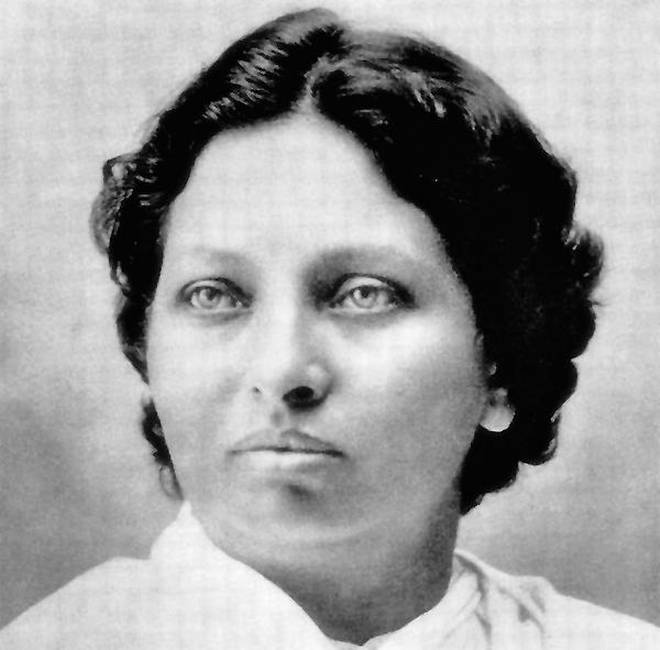Epidemics have altered the course of history in more ways than one, since they have given rise to certain socio-political and cultural developments. They produce specific vulnerabilities and issues in every society. They have had a significant effect on personal relationships, art, literature, and reinforced inequalities and discrimination of various kinds across the world.
To make sense of all this, the Indian Cultural Forum has begun a mini-series with Indian historians. In the first feature, Mukulika R spoke to Romila Thapar. In the second, we speak to Uma Chakravarti about the plight of the labouring class amid the pandemic, the actions of the state, and more.

Mukulika R (MR): We have witnessed how certain kinds of exploitation and oppression get exacerbated during crises like epidemics. Could you talk about this in the light of the current pandemic?
Uma Chakravarti (UC): As the concerns around COVID-19 began to surface in mid-March and the lockdown began to be implemented, I found myself confused and unable to absorb the new moment we were all suddenly confronted with. The incomprehension itself was compounded by the series of events that had preceded it — first, the NRC and the huge crisis in the North-East, followed quickly by the Citizenship Amendment Act (CAA) assault upon us. The response to the CAA had led directly to the crackdown on protesting students at the Jamia and Aligarh Universities, and then the protests at Shaheen Bagh that drew large numbers of Muslim women into an extraordinary protest that the government could not directly crackdown upon. The “Shaheen Baghs” multiplied across Delhi and other cities in India. It was a heady moment, especially for feminists, to see these protests sweep the country, which the government was unable to stop.
Then it came up to the manufactured and targeted violence against Muslims in North-East Delhi in February 2020. However, before we could absorb that, came the pandemic. Given the events that preceded it, including the daily bulletins about the collapse of the economy, the natural reaction was that the outbreak was extremely handy in diverting all the other unrest. It was therefore difficult to look at the panic that seemed to accompany the pandemic in purely “disease and remedy terms”, which is what was expected of us.
So, somehow, when the panic and the arrangements to deal with the disease took hold of public imagination, I began to think of history and the past. Of course, that took me to the Buddha, where according to the storyline, prince Siddhartha first meets disease, old age and death, and is so shocked by all of it that he needs to leave home and the palace in search of an answer to human misery. He found his answer in ways that may or may not make sense to us today, but for me, the pandemic is a “Buddha moment” in history. Suddenly, we are reminded that disease and death are imminent, that no one can escape it and that money cannot buy you an escape from it, because no one has a cure for it as yet. So, suddenly, the ephemeral neo-liberalised world, where everyone’s ambition is to go higher and higher to achieve individual success, has burst like the bubble it always was.
However, soon, COVID-19 was not just a reminder of disease and mortality, of the imminence of death, but about how we were handling the virus; of how we were responding to the enormous misery that it had suddenly unleashed upon us; of how such large swathes of our people went from work and minimal food, to hunger and degradation in a few days. When panic set in, which most of us did not understand, we were taken over by the images of fleeing labourers desperate to escape the cities they had earlier flocked to, as a reprieve from the depredations of the disease, the hunger, and the humiliation it brought with it.
Also Read: “A healthcare system covering everyone must be put in place”
Tansen Gond and his fellow labourers were walking home along the railway tracks, when they were overtaken by exhaustion and fell asleep on it; they were then taken over by the cruelty of a state that ran its trains over them, to carry goods, rather than them, because they were mere labour—to work when it was convenient and necessary, and dump when times were bad. It was hard to absorb. It was a moment when history forced itself as an experience to go back to and seek answers from.
To begin with, how do we, the post-liberalisation, post-Marxist world see or understand labour? As online discussions started, the difference between policy makers and scholars of labour became strikingly apparent — the policy makers were talking about what the government could do realistically and what would not happen (because the government was not going to do it in the state we live in).
Jan Breman, whose works on labour in Gujarat over a 30 year period should be read by all, made a sharp comment on how labour was viewed by state, society and policy makers alike: Labour was a commodity—they were not citizens. I don’t think policy makers even understood what Breman was bringing up, but I was reminded of what I had taught my students in history classes on slavery in Greece and Rome.
The Romans had a classification of what was used in production – you had the “instrumentum mutum”, which was the tool that could not speak, was “mute”; these were the tools you used in agriculture: the plough, the spade, the sickle, and so on. Then there was the “instrumentum semi vocale”, the tool that could speak in part: the bullocks, the other animals used in agriculture, which had a voice of sorts and might even protest. Finally, on the top of the scale was the “instrumentum vocale”, the speaking tool – the slave, who too was a mere instrument of production. I am not sure if we are still teaching such things anymore, but we do treat labour as dumb instruments of production, so we do not need to open up the stocks of food in godowns, because that belongs to the state, not to the people who collectively produced it through cheap labour. Labour could starve and then walk home to try and reclaim some of their dignity, even as the police showered lathi-blows on them.

Cut to today. What the fleeing labourers have shown us is that they not only know that they are mere instruments of production, but that they are caught in an unusual combination of things that have hit them. They have been hit by an induced, man-made famine of sorts, but also a deadly disease, a pestilence that has no borders, and they have no homes that they can lock themselves into. Their panic is entirely rational; their desire to return home is not only about being with their extended families and communities, it is about soil and water and air and a place where you were born, and had something of a right to be in, at least as of now.
MR: Historians have also argued how anti-plague measures in colonial Bombay were tools for repression and to establish socio-political hegemony. Do you see a similar rise of hegemonic discourses in the context of the current pandemic?
UC: In history, famines and epidemics are usually distinct entities, not conflated into one. Because hunger is a running theme in the present crisis, I am unable to look at disease as distinct from hunger, deprivation, and possible death.
David Arnold’s account of the Madras Presidency famine in 1875-78 read now, post COVID-19, has many issues that resonate with today — people desperately looking for food, being fed in traditional charitable institutions, not by the state but by erstwhile rulers who were performing their “raj dharma”, by choultries and inns, by wealthier members of the community. But it wasn’t enough. As hunger went deeper into their vitals, when they finished eating the dead animals which had themselves starved to death (the Brahmins could not do that though), they began to move into the hills of the Nilgiris in a panic-distress mode, a kind of search for an El Dorado. At that time, they went to the towns, away from the countryside, which had nothing for them to eat.
It was at that time that Pandita Ramabai (April 1858 – April 1922) lost her parents. Ramabai’s family were peripatetic wanderers who travelled on foot from village to village, telling harikatha stories and surviving on what the villagers fed them. The famine, however, took its toll. There was no food to spare and Ramabai’s father was the first to go. Ramabai’s mother was much younger and was wasting away. The family was trapped by culture and caste, so it could not labour. Desperate to save her mother, after days of enforced fasting, Ramabai decided to go beg for some food to save her mother. Some kind person gave her a piece of bajra roti, which Ramabai brought back and tried to feed her mother with, but the mother could not absorb in her starved condition; she died without food, a victim of the great famine. It was such a bad time that there weren’t even four pallbearers to carry the bier, so Ramabai became one of the pallbearers.
In Ramabai’s own words:
I cannot describe all the sufferings of that terrible time. My father, mother and sister all died of starvation within a few months of each other… we continued to walk ceaselessly but the gods did not appear to us. Slowly we began to lose faith…
Ramabai never forgot this famine and the terrible distress.
When the next great famine came around in central India, Ramabai went there from Poona on a rescue mission and brought back hundreds of children, especially girls, who would be the first to be abandoned by their parents or be taken advantage of by men who would be on the lookout for girls to use in the brothels later.
Also Read: COVID-19: A Crisis of Multiple Paradoxes
The hundreds of famine survivors she brought back went into the home she ran for widows in Poona. It was surrounded by wealthier householders who objected to the rabble she had brought into the home she ran. The municipality sent her a notice to take all the rabble away. No matter that Ramabai had rescued them from death, but what do the elites care for the starving and governments too for whom “rules” are more important than human beings. Resourceful as ever, Ramabai moved the entire institution to a piece of land she had some sixty miles from Poona and there they stayed. There is an extraordinary photograph of meal time at the Mukti Sadan which has a long line of people with plates in hand, a visual reminder of that moment in our history. Ramabai paid her debt to her parents in the best way she could.
Years later, Ramabai had to deal more directly with pestilence.
In 1897, the plague broke out in Poona and its environs. The colonial government took harsh measures to forcibly lockdown suspected cases of plague, and in one such swoop, the officials carried away one of Ramabai’s girls from Mukti Sadan to a segregation camp. The girl was abducted from there by one of the municipal officials. A furious Ramabai wrote a letter to the newspapers, which was taken up by a member of parliament in Britain. The Bombay government was furious with her and accused her of lying; she in turn hit back and accused the governor of lying. Ramabai’s mentors were horrified and accused her of sedition, but Ramabai stood her ground refusing to back down, while many of the Brahmana men had also objected to the search and control measures. In the end, everyone took back their accusations and only Ramabai refused to do it, earning her some respect from her old adversary Tilak, who had earlier damned her for converting to Christianity.

Arbitrary actions by the state, which first reneges on its duty to administer and govern its people – whether colonial or postcolonial – almost always seem to let down the poor and the marginalised of our societies. Instead of food, they get beaten by the police. Far from doing their duty to be “mai baap,” they leave them to fend for themselves. When they find their own way to escape hunger and degradation, they face more violence. Far from living in a society that acknowledges the rights of people who labour as citizens – not as commodities – we have abandoned those who labour to the vagaries of the neoliberal economy, which undergirds the state and all its actions. It is supremely uncaring.
It is time to recall Buddha’s emphasis on compassion: the state could do with some humanity, some ethics and some Karuna: but do we care? Like Ramabai, we need to stand up and demand from the Parliament of our country that it too stands up to discharge its duty to its people and not remain mute observers of the greatest humanitarian crisis of our times.
Mukulika R is a member of the Editorial Collective at Indian Cultural Forum, New Delhi.




